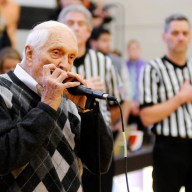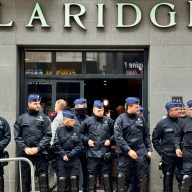OTTAWA – Democracy Watch will appeal a speedy Federal Court judgment that squelched its bid to have Stephen Harper’s election call last year declared illegal and unfair.
Justice Michel Shore took just over a week to rule that the watchdog group failed to prove its case against the prime minister.
“We think he got it wrong in every way,” Democracy Watch co-ordinator Duff Conacher said Thursday.
“It’s too important an issue to let one Federal Court judge decide. The higher courts need to rule on this.”
It will likely be at least six months before the Federal Court of Appeal considers the case.
Harper asked the Governor General to dissolve Parliament last September despite his own fixed-date election law. That law set the next federal vote for Oct. 19, 2009 – or sooner, if the government lost a non-confidence vote.
Democracy Watch says Harper broke his promise of election reform and the spirit of the law in a blatant grab for majority power.
But Justice Shore said the group’s lawyer, Peter Rosenthal, gave only vague evidence as to how the snap campaign put opposition parties and voters at a disadvantage.
“The applicants do not provide any legal reasons to support their submission that the election of 2008 was unfair,” he wrote in the 31-page ruling.
“The Supreme Court defined a ‘fair election’ . . . as the right to ‘meaningfully participate’ in the electoral process.”
According to the high court, that means “when a citizen is able to vote in an informed manner,” Shore wrote.
Nor was the judge convinced that the fixed-date law restricts when the prime minister can ask the Governor General to dissolve Parliament.
Democracy Watch says changes in 2007 to the Canada Elections Act were meant to bar such visits to Rideau Hall unless the government had lost a confidence vote.
It cites repeated assurances from several Tory MPs, including Attorney General Rob Nicholson – then minister for democratic reform – that the changes would outlaw cynically timed votes called on partisan whims.
For example, on Dec. 6, 2006, Nicholson told a Senate committee studying the fixed-date election changes: “At this time, there is nothing stopping any prime minister who sees an electoral advantage from asking the Governor General to dissolve Parliament and call an election, even though there is no issue that could in any way be described as a confidence matter.
“However, under this bill a prime minister would be restricted in that situation.”
Government lawyers stressed that the law as it was actually passed does not clearly prohibit the prime minister from pre-empting a no-confidence vote and going to Rideau Hall.
Still, Democracy Watch says the legal changes amount to a “convention” blocking such opportunism.
Lawyer Rosenthal, who is working pro bono for the group, says the Hansard record of parliamentary debate clearly shows that barring snap elections was the true intent of the legislation. The Supreme Court in the past has used such political exchanges to help interpret laws, he said.
Shore’s finding that the Hansard record is “ambiguous” on that point is “an error,” Rosenthal said.
Shore also noted that the term “vote of non-confidence” is not clearly defined in law. He ruled that Democracy Watch has wrongly cast a debate over political fair play as evidence-based legal arguments.
He stressed that the Governor General’s ability to dissolve Parliament was unchanged by the Conservative election law.
















